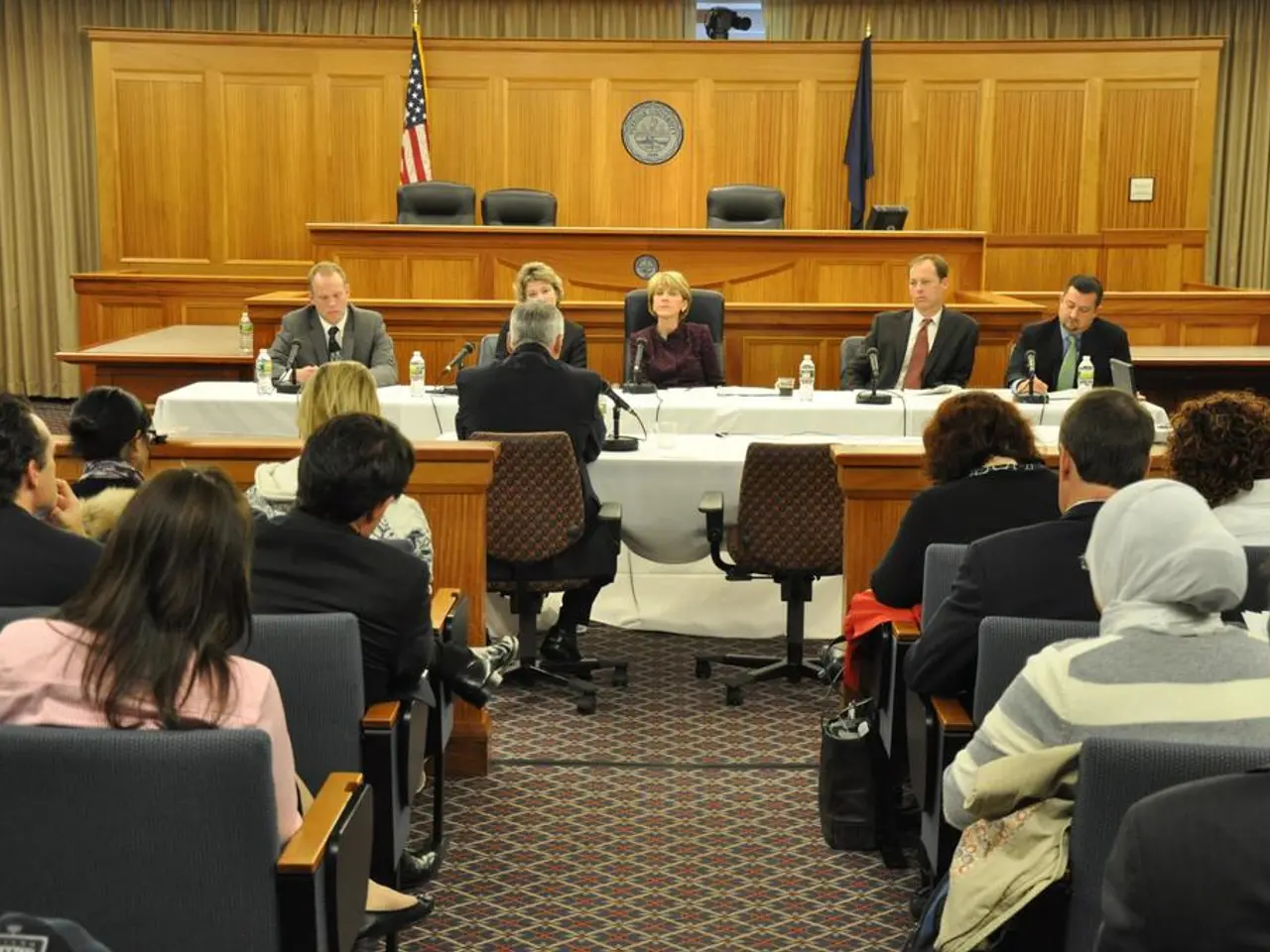Enhanced Immigration and Customs Enforcement (ICE) operations may intensify, potentially exacerbating existing issues, before improvements are observed.
In the current political climate, restaurant and hotel operators face a challenging landscape, with increased immigration enforcement activity and potential changes to minimum wage laws. Here's what operators need to know to stay compliant and prepared.
Under the current administration, immigration enforcement activity has been stepped up, and operators are advised to ensure full compliance with federal hiring and employment documentation laws. This includes rigorously verifying work authorization status for all employees and maintaining proper records to avoid penalties during ICE site-based investigations, which have resumed nationwide across all industries, including restaurants and hotels.
Operators should also stay informed about shifting enforcement policies. After a short pause on enforcement in hospitality and agriculture sectors, ICE has lifted exemptions and resumed raids and investigations at these workplaces since mid-June 2025. Operators need to closely monitor any further announcements or guidance.
Engaging with industry groups and legal experts can provide valuable resources and insights. Organizations like the National Restaurant Association offer resources and webinars on labor law compliance and how to navigate immigration enforcement. Consulting with immigration attorneys can also help clarify best practices and risk mitigation.
With ICE arrest targets increasing and aggressive enforcement resuming, there is a risk of labor shortages, disruption to operations, and economic impacts, especially in regions with large immigrant workforces. Operators should explore workforce strategies including compliant hiring, retention efforts, and possibly contingency staffing plans.
Some groups are working with officials to shape enforcement policies that protect long-serving workers while ensuring legal compliance. Operators can participate in industry advocacy to promote balanced approaches that support business stability.
Regarding minimum wage, a proposal to raise the federal minimum wage to $15 per hour was put forward by Republicans. If implemented, this would significantly increase wages for low-income workers. However, as of now, there is no clear commitment or action from the President regarding this proposal.
Joe Kefauver and Franklin Coley of Align Public Strategies discussed the President's apparent flip-flop on immigration enforcement, as well as the implications of these actions on operators of restaurants and hotels. The discussion in Working Lunch focused on preparing for future immigration enforcement activities and the potential impacts on the industry.
In summary, the current immigration enforcement environment demands that restaurant and hotel operators prioritize strict legal compliance, stay alert to policy reversals, prepare for operational challenges from raids, and actively seek guidance and advocacy to navigate the evolving landscape. Meanwhile, the minimum wage debate continues, with potential significant implications for low-income workers and the hospitality industry. Operators are encouraged to stay informed and engaged in these discussions.
- Given the rampant immigration enforcement activity under the current administration, it's crucial for restaurant and hotel operators to diligently comply with federal hiring and employment documentation laws, such as verifying work authorization status for all employees and maintaining proper records to avoid penalties during ICE investigations – a Mirror of policy-and-legislation and crime-and-justice.
- As shifting enforcement policies in politics can have a profound impact on the hospitality industry, operators ought to closely monitor any further announcements or guidance about ICE enforcement, including the resumption of raids and investigations at workplaces – a vital aspect of general-news that affects the industry's stability.





